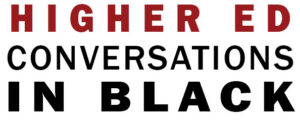Welcome to the the Inaugural Edition of Higher Ed Conversations in Black.
The editor for this premiere edition is Jordan Harper, the Pullias Center Research Assistant whose idea and dedication have brought this project to fruition.
The Great Challenge Amidst the Fall Restart for Higher Education
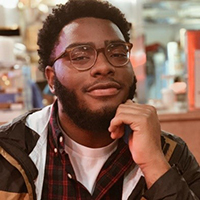
Before his passing, Congressman John Lewis penned a New York Times op-ed where he reminded people to get involved with “good trouble, necessary trouble.” Lewis risked his life for justice and inspired subsequent generations to do the same, with dignity and pride. His words urge us not to be defeated nor despondent in the fight for justice and equity. As the ills of the world continue to pressurize every person and institution to change for the better, higher education cannot remain unscathed. Since its very inception, the field of education has served as a place of inequality, injustice, performative allyship, and (in)action. However, it can very well transform into a space of liberation, radical care, and equity. Yet, as John Lewis would remind us, neither the work nor the walk can be done alone. Students, faculty, staff, and administrators must be there for one another and work together to make their institutions better places. However, most importantly, students, faculty, and staff must recognize their power and uplift one another irrespective of position within the institution.
Now seems to be an opportune time to launch our series, Higher Ed Conversations in Black since higher education has reached a breaking point in the last couple of months. Calls for equity, divestment, and liberation have been amplified in response to recent events including the senseless killings of Breonna Taylor, George Floyd, and countless others at the hands of state-sanctioned violence. And in the past week, we were once again reminded of the need for justice and liberation after the shooting of Jacob Blake, who lived to tell the story but will now have to live life as a disabled Black man. Also, postsecondary institutions have been weighing decisions regarding reopening their respective campuses during a global pandemic that is disproportionately affecting Black people. Now, more than ever, it is necessary to highlight and purposely center the notes, musings, and opinions of Black thought leaders and scholars in higher education. They provide a unique and compelling perspective about the postsecondary education system that is informed by their positionalities in higher education and society. We expect that the responses to the questions we pose will provoke dialogue, provide context, and perhaps even inspire.
Accordingly, this inaugural edition focuses on the fall restart. We are curious to know what policies and practices are most pressing to address given we are starting a new academic year in the middle of a global pandemic and powerful civil rights movement. What tactics make sense to elicit change? We intentionally reached out to thought leaders who all have different yet compelling perspectives on higher education priorities, especially in this critical moment. We hope that the conversations remind readers that the capacity and courage needed to get involved in good and necessary trouble exists in all of us.
The inaugural questions I have selected for this Higher Ed Conversations in Black are: As the new school year begins amidst a global pandemic and ongoing racial violence, what kind of “good and necessary trouble” do you recommend students, faculty, and/or staff get into? …and… As you prepare for the new school year, where do you find inspiration?
– Jordan Harper
Contributors
Charles Davis
Racial Equity Scholar, Organizer, Strategist, Innovator
Sharon Fries Britt
Distinguished Scholar Teacher, Former Higher Ed Administrator
Pedro Noguera
Dean, Scholar, Sociologist, Former Public School Teacher
Raquel Rall
Equity Scholar, Change Agent, Expert in University Governance
John Slaughter
Academic Leader, Former NSF Director, Trailblazer
click contributor names for bios
As the new school year begins amidst a global pandemic and ongoing racial violence, what kind of “good and necessary trouble” do you recommend students, faculty, and/or staff get into?
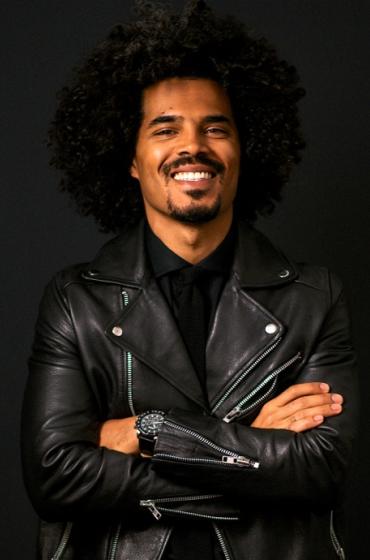 Charles Davis: This sociopolitical moment, one full of controversy and challenge, is a unique opportunity for higher education stakeholders to reckon with their commitments to the espoused values of diversity, equity, and inclusion. In particular, students, staff, and faculty need to contend with how power, both interpersonally and systemically, continue to shape and drive deep racial inequities in student success, the exploitation of vulnerable staff and contingent workers, and our institutions’ pervasive commitment to place profits, productivity, and prestige ahead of people. This means getting into the “good and necessary trouble” of actively resisting anti-Blackness and white supremacy, both of which further separate Black people of higher education from access to good love, healthy choices, and opportunities for second chances. For White educators, this specifically means relinquishing the space whiteness affords and accepting the risks of refusing the privileges associated with the ascribed status of social and institutional power. For non-Black racially minoritized people, it means recognizing racial solidarity is not a politic of rhetoric. Rather, solidarity is about consistently demonstrating a willingness to actively struggle with and in service to improving the material conditions of the Black lives in closest proximity. And, for us, as Black people, it means doing what we have always done – what we have always had to do – without apology or qualification, which is love and fight for each other as though every Black life were our own, because it is.
Charles Davis: This sociopolitical moment, one full of controversy and challenge, is a unique opportunity for higher education stakeholders to reckon with their commitments to the espoused values of diversity, equity, and inclusion. In particular, students, staff, and faculty need to contend with how power, both interpersonally and systemically, continue to shape and drive deep racial inequities in student success, the exploitation of vulnerable staff and contingent workers, and our institutions’ pervasive commitment to place profits, productivity, and prestige ahead of people. This means getting into the “good and necessary trouble” of actively resisting anti-Blackness and white supremacy, both of which further separate Black people of higher education from access to good love, healthy choices, and opportunities for second chances. For White educators, this specifically means relinquishing the space whiteness affords and accepting the risks of refusing the privileges associated with the ascribed status of social and institutional power. For non-Black racially minoritized people, it means recognizing racial solidarity is not a politic of rhetoric. Rather, solidarity is about consistently demonstrating a willingness to actively struggle with and in service to improving the material conditions of the Black lives in closest proximity. And, for us, as Black people, it means doing what we have always done – what we have always had to do – without apology or qualification, which is love and fight for each other as though every Black life were our own, because it is.
Raquel Rall: It’s imperative that all campus stakeholders use their position, expertise, and voice to advance equity in their respective spheres so that it might reverberate campus-wide. In particular, I hope that underrepresented campus affiliates would do as my father always encouraged me to do and “make folks just as uncomfortable as they attempt to make you”. Be the best in your respective spaces and start to open the door so that more diverse perspectives and individuals can enter. Nothing makes those in power feel more uncomfortable than when you exude your uniqueness, demonstrate that you are great not in spite of, but because of your background, and begin to make intentional and meaningful changes, both large and small, that will impact your classrooms, departments, and campuses. We have to begin to disrupt the commonplace policies, practices, procedures, behaviors, and attitudes that would sideline minoritized groups. One way I might make some folks uncomfortable this year, for instance, is through my new undergraduate course, Black Brilliance Matters, where we will examine the role, experience, scholarship, and representation of Blacks in Higher Education. If it goes as planned, the course will stir up good, necessary, and overdue trouble in future change agents.
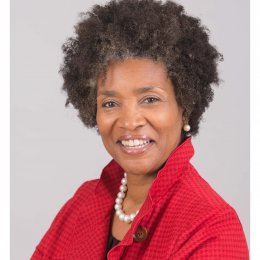 Sharon Fries-Britt: In this season of a global pandemic and racial violence we must value radical self-care in our body, mind and spirit. Black people in the academy must breath deeply and not let the academy take our breath away. Good trouble is having the courage to speak up, show up and question practices, policies and attitudes that seek to diminish our life. However, even in this season we must pick and choose our battles carefully so that we can endure and make it to the other side (e.g. graduation, tenure, life after COVID). We are dying everyday more often, and in more ways! We have fought for ourselves, and others; and while it is gratifying to see the current diversity supporting BLM I am not as confident about who will be on the front line decades from now. I would like to believe that we have turned a corner in America but I need a lot more evidence that a new multi-racial, multi-generational and socially complex community of activists will support Black Lives forever! It is not an option for those of us who live in Black bodies. I am cautiously optimistic, breathing deeply and ready for the journey ahead.
Sharon Fries-Britt: In this season of a global pandemic and racial violence we must value radical self-care in our body, mind and spirit. Black people in the academy must breath deeply and not let the academy take our breath away. Good trouble is having the courage to speak up, show up and question practices, policies and attitudes that seek to diminish our life. However, even in this season we must pick and choose our battles carefully so that we can endure and make it to the other side (e.g. graduation, tenure, life after COVID). We are dying everyday more often, and in more ways! We have fought for ourselves, and others; and while it is gratifying to see the current diversity supporting BLM I am not as confident about who will be on the front line decades from now. I would like to believe that we have turned a corner in America but I need a lot more evidence that a new multi-racial, multi-generational and socially complex community of activists will support Black Lives forever! It is not an option for those of us who live in Black bodies. I am cautiously optimistic, breathing deeply and ready for the journey ahead.
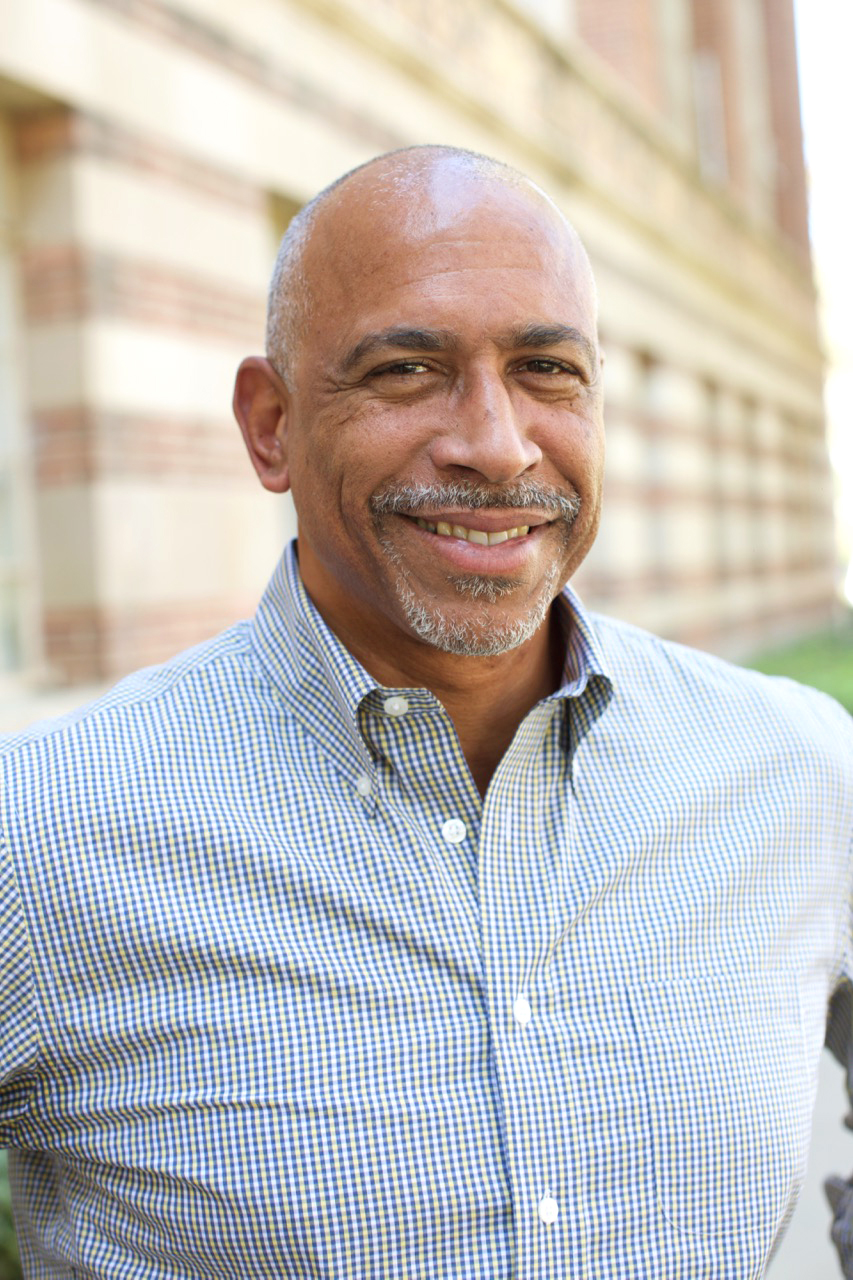 Pedro Noguera: The need for “good trouble” has never been greater. The pandemic has exposed the deep and persistent inequality in American society, and the racial justice movement sparked by police and vigilante murders of Black people, has exposed how far away we are from securing human rights in the US. Finding ways to creatively address these issues is important because our future depends upon it. The protests that have occurred throughout the country in the spring and summer of 2020, were a necessary jump start to a movement to challenge racial inequality and injustice, but can it be sustained? I believe the movement must incorporate a concerted and creative organizing and educational strategy to build a broad alliance for change. We can look to the anti Apartheid movement and the grape boycott for useful lessons.
Pedro Noguera: The need for “good trouble” has never been greater. The pandemic has exposed the deep and persistent inequality in American society, and the racial justice movement sparked by police and vigilante murders of Black people, has exposed how far away we are from securing human rights in the US. Finding ways to creatively address these issues is important because our future depends upon it. The protests that have occurred throughout the country in the spring and summer of 2020, were a necessary jump start to a movement to challenge racial inequality and injustice, but can it be sustained? I believe the movement must incorporate a concerted and creative organizing and educational strategy to build a broad alliance for change. We can look to the anti Apartheid movement and the grape boycott for useful lessons.
I am excited for my first year as Dean of the Rossier School of Education despite the tremendous challenges facing our society. More people finally recognize that restarting schools is essential for restarting the economy. However, we should aspire to do much more than return to normal. Status quo conditions in schools left too many kids behind and too many schools were struggling to meet the needs of our most vulnerable students. We must work to transform schools so that they are better able to meet student needs and offer an education that stimulates and inspires young people to take on the enormous challenges facing our society and the world. I am excited to lead Rossier in carrying out the research, scholarship and training that can be instrumental in producing this transformation.
As you prepare for the new school year, where do you find inspiration?
 Raquel Rall: I am (re)filled daily from two interminable reservoirs: the roots of my past and the branches of my future. It was ingrained in me from an early age (thanks, Mom) that to whom much is given, much is required (Luke 12:48). So, reflecting on and recognizing that I stand on the shoulders of giants—those known and unknown—who fought, prayed, hoped, endured, resisted, and died for me to be here in this moment readies me daily. But this affirmation of heritage only gets me part of the way. Its necessary complement comes from the four little girls that call me Mommy. Because of them I have no choice but to be educated, engaged, emboldened, enraged, and empowered, because just as my ancestors wanted more for me, I wish more for them and must do my part to bring it to fruition. If the past is prologue for the future and the future is a reflection of the past, then today, my inspiration is fueled at the intersection of multidirectional ripples that are always present and effecting change. So, as I prep for another year of service, teaching, and research I am motivated because I don’t do the work alone.
Raquel Rall: I am (re)filled daily from two interminable reservoirs: the roots of my past and the branches of my future. It was ingrained in me from an early age (thanks, Mom) that to whom much is given, much is required (Luke 12:48). So, reflecting on and recognizing that I stand on the shoulders of giants—those known and unknown—who fought, prayed, hoped, endured, resisted, and died for me to be here in this moment readies me daily. But this affirmation of heritage only gets me part of the way. Its necessary complement comes from the four little girls that call me Mommy. Because of them I have no choice but to be educated, engaged, emboldened, enraged, and empowered, because just as my ancestors wanted more for me, I wish more for them and must do my part to bring it to fruition. If the past is prologue for the future and the future is a reflection of the past, then today, my inspiration is fueled at the intersection of multidirectional ripples that are always present and effecting change. So, as I prep for another year of service, teaching, and research I am motivated because I don’t do the work alone.
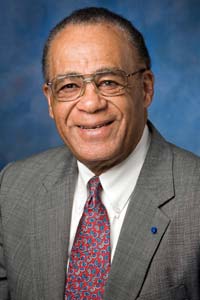 John Slaughter: As an elementary school student, I was required to attend an all-Black elementary school in the pre-Brown vs. Board of Education school district of Topeka, Kansas and had to endure the structural and systemic racism that was so prevalent in our community. Years later, after completing my college education, I began to reflect on why it was that my white peers in high school and college had been so insensitive to and, in some cases, seemingly unaware of the barriers faced by their fellow black students in their quest for equality and inclusion.
John Slaughter: As an elementary school student, I was required to attend an all-Black elementary school in the pre-Brown vs. Board of Education school district of Topeka, Kansas and had to endure the structural and systemic racism that was so prevalent in our community. Years later, after completing my college education, I began to reflect on why it was that my white peers in high school and college had been so insensitive to and, in some cases, seemingly unaware of the barriers faced by their fellow black students in their quest for equality and inclusion.
The response to the senseless murders of George Floyd, Breonna Taylor and Ahmaud Arbury as well as the unabashed support for the Black Lives Matter movement shown by peaceful demonstrators, many of whom, if not most, were young people of myriad races, cultures and ethnicities, tells me that this generation of students is different. That realization fills me with a sense of optimism and excitement about the future and the prospect that they will be the ones to lead this nation in its efforts to become more just and equitable. That possibility inspires me as we begin this new academic year.
HIGHER ED CONVERSATIONS IN BLACK
Issue 01 | Created and Edited by Jordan Harper | Executive Editors : Zoë Corwin, Jordan Harper, and Adrianna Kezar
